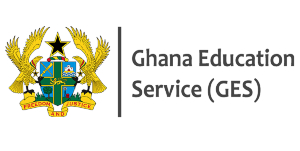President John Mahama has indicated that though the government is desirous in the long term to grow the economy to standards of typically developed economies where agriculture contributes about 2% of GDP, industry about 23% and services about 75%, the agricultural sector in the country will continue to play a dominant role in the economy for a considerable length of time.
This is because the agriculture sector continues to employ about 60% of the labour force and contributes about 22% of GDP. He recounted that at the 2009 World Food Summit the Director-General of the FAO stated that food production must expand by 70% in the world and double in the developing countries to meet the food needs of a world population expected to reach 9.1 billion in 2050.
“It follows that the development of food and agriculture production capacity of farmers is central to improving the livelihood of majority of our people and even the performance of the economy,” he stated.
Delivering his address at the opening of the 1st Annual West Africa Fertilizer Stakeholders Forum this week, the President noted that agricultural productivity continues to be uncertain and high-risk activity because of its fundamental dependence of weather conditions and fraught with other challenges.
Some of which include the low use of quality certified seeds, low fertilizer replenishment strategies, reduction in the length of fallow periods among others.
He observed that in line with the Abuja Fertilizer summit of 2006, the country instituted the fertilizer subsidy programme two years later to raise the current low application of fertilizer in the sub-region reckoned at 8 kilograms per hectare compared to thetarget of 50 kilograms per hectare by 2015.
The President was candid enough to state that the country is still pursing the programme amidst “very disturbing irregularities” along with other key interventions to attain food self-sufficiency. While the world average for fertilizer application is 107 kilogramms per hectare, even the ECOWAS target of 50 kilograms per hectare is proving elusive as we edge towards the 2015 target, in some 18 months!
The forum in Accra sought to ensure a favourable policy and regulatory environment for fertilizer trade and use in the sub-region. However, the Paper fully associates itself with the concern raised by the President through his emissary when he admitted that increased fertilizer use is part of the greater goal of healthier soils for increased productivity but stated that not just any fertilizer but quality ones.
The President bemoaned the situation where the continued use of inorganic mineral fertilizer, especially ammonium salts tends to make the soils acidic, thereby negatively affecting the microbial activity in the soil and reduce the efficacy of the applied fertilizer.
The challenge here is to procure the best quality fertilizer for the farmers’ us.
Business News of Thursday, 26 September 2013
Source: B&FT

















